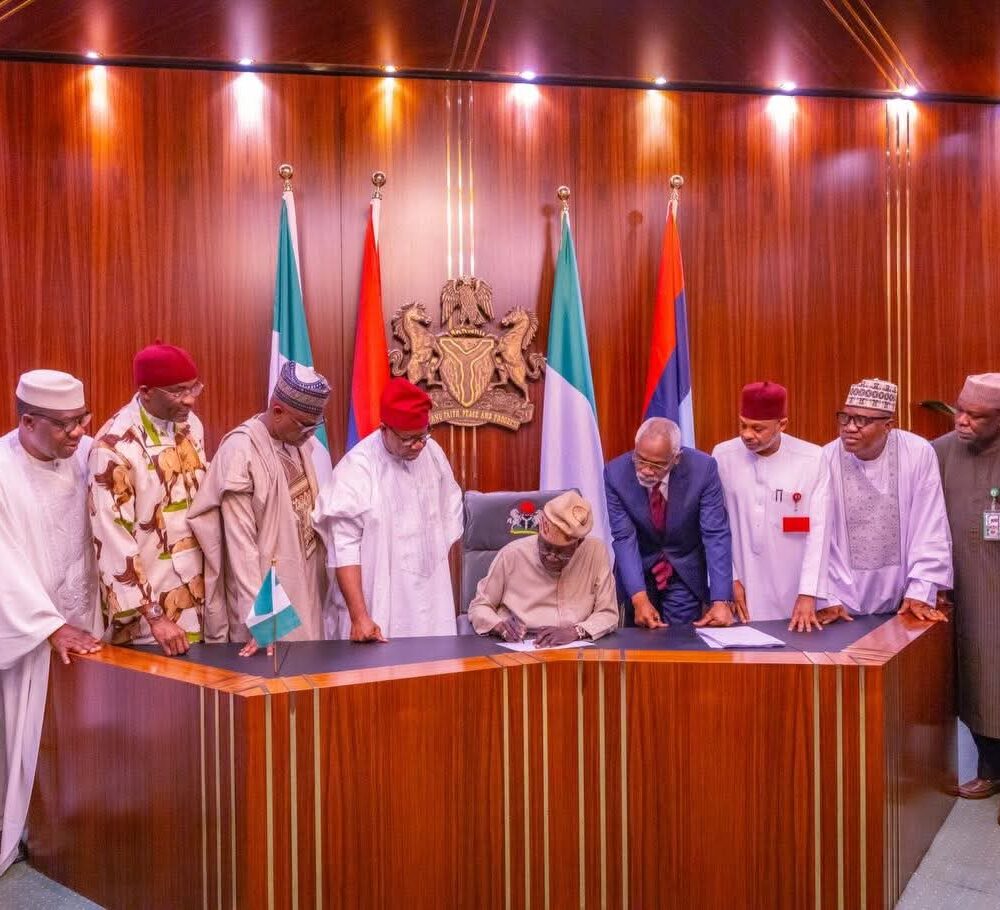The reader is probably asking, “Who in the world is Ayodele James?” Well, Lebi-Ayodele James made headlines on July 13 when an Abuja High Court sentenced him to a two-year jail term—and asked him to refund N100,000 to the government in restitution—for forging an Institute of Chartered Accountant of Nigeria (ICAN) certificate, a coveted professional license for accountants.
He was convicted of “forgery of certificate contrary to section 25(1)(a) and punishable under section 25(1)(b) of the ICPC Act 2000 and being in possession of a forged document contrary to section 368 of the Penal code CAP 532, Laws of the FCT Nigeria 2006.” He was also convicted of parlaying his forged ICAN certificate into getting a promotion at the office of the Auditor-General of the Federation.
This would have been an unremarkable, run-off-the-mill fraud case had it not come to light a little over a week after Premium Times reported that Finance Minister Kemi Adeosun forged an NYSC exemption certificate she isn’t entitled to have, and for which she has faced no consequences. By Nigerian law, Adesoun has committed at least two offenses: failure to participate in the NYSC scheme after claiming her Nigerian citizenship (since she got her bachelor’s degree before the age of 30) and forgery. She should also be prosecuted and thrown into jail like James.
James’ ICAN certificate forgery and Adeosun’s NYSC exemption certificate forgery bear many striking similarities. James owed his position as a “senior auditor” in the office of the Auditor-General of the Federation to his forged ICAN certificate. His degree, without ICAN certification, had earned him the position of an “executive officer” at the office.
Like James, Adeosun owes her current job to her forged NYSC exemption certificate since the act that established the NYSC says, “[…] it is illegal to hire a person who graduated but failed to make himself or herself available to serve, or falsify any document to the effect that he or she has served or exempted from serving.” Although Adeosun was born in the UK, she is now a Nigerian citizen and is obligated by law to participate in the one-year national youth service scheme. It is the legal precondition for her previous and current employment in Nigeria.
The Abuja high court judge who sentenced James to two years in prison without an option of fine lamented that had James’ forgery not been discovered, he could have risen to the position of Accountant-General of the Federation “in the nearest future.” You would think the judge was visualizing the unthinkable.
But Adeosun forged an NYSC certificate “in the present,” has willfully refused to acknowledge the forgery, and is still a minister. As I pointed out last week , a Louis Edozien whose credentials were found to be forged after an audit in 2014—and fired as a consequence—is now the Permanent Secretary in the Ministry of Works, Power and Housing, Nigeria’s biggest ministry. And Okoi Obono-Obla, Chairman of the Special Presidential Investigative Panel for the Recovery of Property, was discovered to have fudged his WASC to gain admission to study law at the University. He hasn’t lost his job. So the judge’s lamentation about a bleak future he averted is insensitive to the blight of forgery in the present.
What has become clear in all of this is that in Buhari’s Nigeria, justice isn’t blind. Its blindfolds are off; it is a love-struck beholder of the president and people in the president’s good graces. The “wrath” of justice is reserved only for the poor, the vulnerable, the uninfluential, and political opponents; in short everyone outside the orbit of the reigning power structure. It is unvarnished and unpretentious in its invidiousness and double standard.
But let this be known: No nation that punishes its poor and protects its powerful for the same offense can endure. Shehu Usman Dan Fodio was right when he said, “A kingdom can endure with unbelief, but it cannot endure with injustice.” Before him, Aristotle said, “The only stable state is the one in which all men are equal before the law.”
For every second that James remains in jail while Adeosun, Edozien, and Obono-Obla not only walk free but live off the fat of the land even when they committed the same offense as he, the very foundation of Nigeria chips off. A nation whose foundation comes off piecemeal as a result of blatant, in-your-face judicial double standard will sooner or later give way. That was what Frederick Douglass meant when he said, “Where justice is denied, where poverty is enforced, where ignorance prevails, and where any one class is made to feel that society is an organized conspiracy to oppress, rob and degrade them, neither persons nor property will be safe.”
This government has adopted a policy of willfully pigheaded silence and insouciance when it is confronted with momentously indefensible scandals. It hopes that the legendary collective amnesia and forgiving spirit of Nigerians where infractions concern people at the upper end of the social scale would conspire with its “silent treatment” strategy to cause the scandals to taper off. But this strategy will soon wear off and the pent-up anger people have been suppressing will burst forth. It’s only a matter of time.
Either we have laws or we don’t. There is no twilight zone. If the law no longer matters, let everyone who violated the law be free. Let James be free. Let no one go to jail or pay a fine for offenses for which other people don’t even as much as get a slap on the wrist. If Buhari wants to run his government on the principles of lawlessness, he should codify this so that we would have no expectations.
In my August 6, 2016 column titled “Nigeria as a Perverse Anarchist Paradise,” I pointed out that given the absence of government in people’s everyday lives, “we might as well formalize anarchism… as our system of government” and concluded that “the stark, unsettling truth is that ordinary Nigerians have no need for government, and government has no reason to exist. The only reason government exists in Nigeria now, it would seem, is to supervise the dispensation of our national patrimony to the ruling elite and to pauperize an already traumatized and dispossessed citizenry.”
This is now truer today than it was in 2016. Nevertheless, for as long as Nigeria makes pretense to having laws, henceforth, every certificate forgery that is punished with imprisonment will always remind Nigerians of government’s criminal and hypocritical silence over the forgeries of Adeosun, Obono-Obla, Edozien, and other favored forgers





